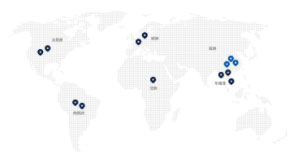Cell & gene therapies are used to treat both rare and common diseases. While gene therapy involves the transfer of genetic material, usually within a virus for uptake into diseased cells, cell therapy involves the transfer of genetically altered cells into a patient. As a leading clinical research laboratory services organization, we provide testing solutions for Cell & Gene Therapy clinical development programs. These include utilizing flow cytometry, immunohistochemistry (IHC), cytokine profiling, immunogenicity and genomics. With our industry-leading science and innovative solutions, we have experience partnering with clients to advance development of their cell and gene therapy trials across numerous indications and development phases.
Cell Therapy
The field of cell therapy is an emerging modality, also known as cell transplantation therapy. Cell therapy is different from traditional drug therapy in that the drug carrier uses living human cells. Cell therapy can be divided into two categories: stem cell therapy and immune cell therapy according to the type of cells used for treatment. The currently approved cell therapy is CAR-T, and the treatment process is briefly described as follows: Isolate immune T cells from cancer patients; use genetic engineering technology, through retroviral and lentiviral vectors, transposition systems (such as SB transposition system) or directly transduce mRNA into T cells to express chimeric antigen receptor (CAR) on the surface of T cells, that is, CAR-T cells which have the function of recognizing cancer cells and proliferating; CAR-T cells are expanded in vitro , and then transported back to the patient.
With CAR-T clinical development, because genetically modified T cells are used, the laboratory measurements for efficacy and safety can require innovative approaches.To this end, this experiment has developed a series of new technologies for clinical trials of cell therapy, including PK test of CAR-T cells, copy number monitoring of transfected virus, and monitoring of minimal residual tumor cells (MRD). Through years of technology accumulation, Teddylab has built a one-stop CAR-T clinical trial laboratory capability including PCR, flow cytometry, pathology, FISH, and Immunoassay, and the related technologies are in the forefront of the world.
MRD test, using New Generation Flow (NGF) method, EuroflowTM MRD (CE/IVD) kit, InfinicytTM software, combined with Euroflow MRD database for data analysis, to solve the analysis standard that cannot be achieved by ordinary flow of unification. The methodology is recommended by the International Myeloma Working Group (IMWG) and Guidelines for the Diagnosis and Treatment of Multiple Myeloma in China and can provide more accurate indications for the efficacy judgment and prognosis recovery evaluation of the patient's disease state.
CAR PK uses flow cytometry to evaluate the percentage of CAR-T cells in lymphocytes and the concentration of CAR-T cells through the principle of antibody antigen results, which can accurately and quickly evaluate the expansion of CAR-T cells in patients after reinfusion. To obtain the corresponding pharmacokinetic data (PK), it can provide a basis for CAR-T cell drug concentration, drug dosage, drug metabolism and disease treatment progress. In order to ensure the accuracy of the test results, Teddylab combined a large number of project experience with reference to "Technical Guidelines for Clinical Trials of Immune Cell Therapy Products (Trial)" and "FDA Guidelines: Precautions for the Development of Chimeric Antigen Receptor (CAR)T Cell Products" , "Chinese Pharmacopoeia", etc., and finally summed up a unique, comprehensive, accurate and effective scheme for evaluating the reliability of test, mainly involving the confirmation and improvement of difficulties such as antibody type, method design, sensitivity and sample stability period.
Teddylab adopts the test method of fluorescence quantitative PCR, and independently developed PK test of copy number of CAR-T cells and safety data replicable lentivirus copy number test. The test designs specific primers for different CAR-T preparations, and use the probe method for qPCR test, prepares a standard curve by plasmid standards of known copy number, and analyzes and calculates the true copy number of samples according to the results of the standard curve. For replicable lentivirus copy number test, the same fluorescence quantitative PCR test method is used, universal primers and probes are designed in the VSV-G region of the lentiviral vector universal fragment for qPCR test, the standard curve is prepared using plasmid standards of known copy number, and the true copy number of the sample is calculated according to the result analysis of the standard curve. This method uses universal primers to adapt to the safety test of different CAR-T cell production.
Oncolytic viruses, an emerging 'dual threat' in the fight against cancer, are used as monotherapy or in combination with existing checkpoint inhibitor/T-cell therapies to provide enhanced therapeutic responses. Teddylab has invested significant resources to create the necessary manufacturing and testing infrastructure needed to facilitate rapid growth.
Teddylab can provide customers with a customizable comprehensive test menu for CGT, including:
• CAR-T PK: CAR copy number, CAR cell count
• PD markers: B cell aplasia, IL-6/transferrin and other immunophenotyping analysis (flow cytometry)
• Safety evaluation: cytokine release, replicable lentivirus, virus copy number, immunogenicity
• Exploratory Biomarker: Immune cell subset typing, cytokine release, minimal residual disease







